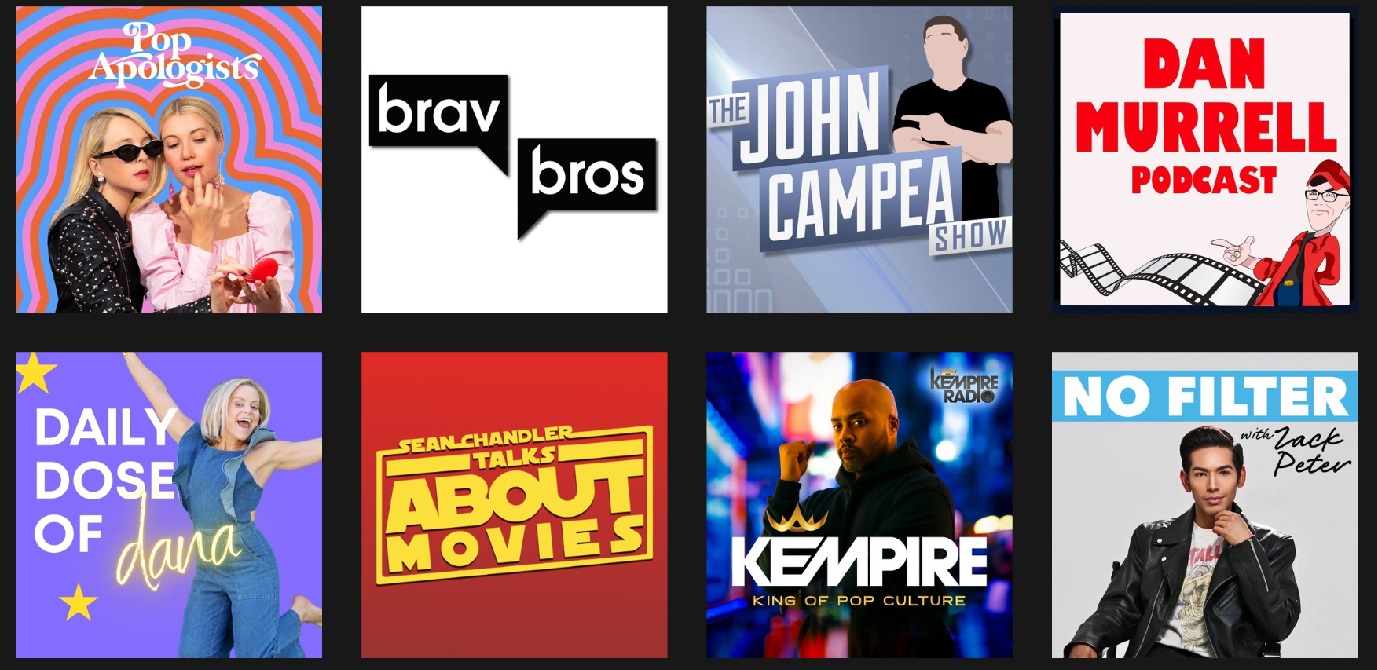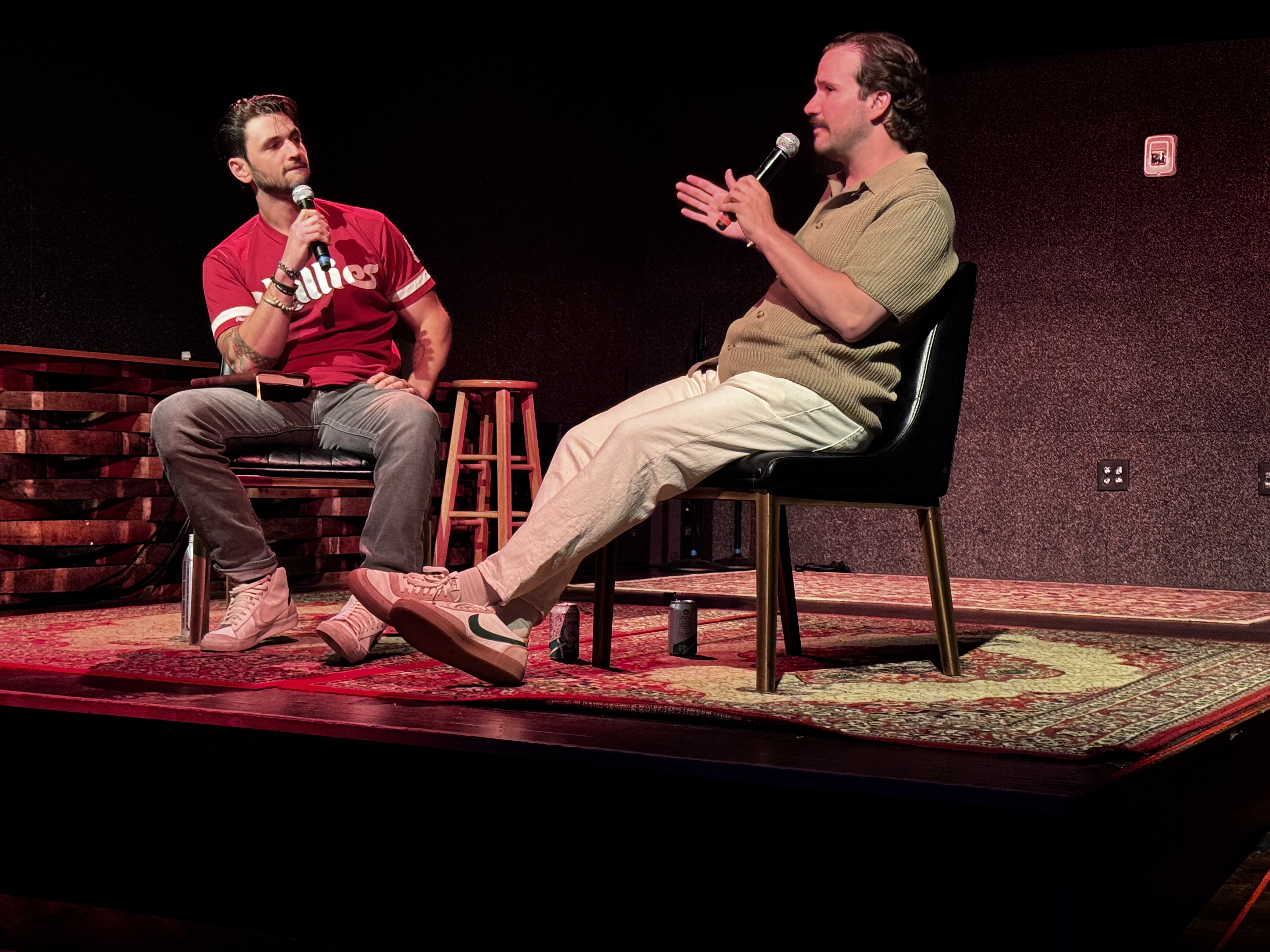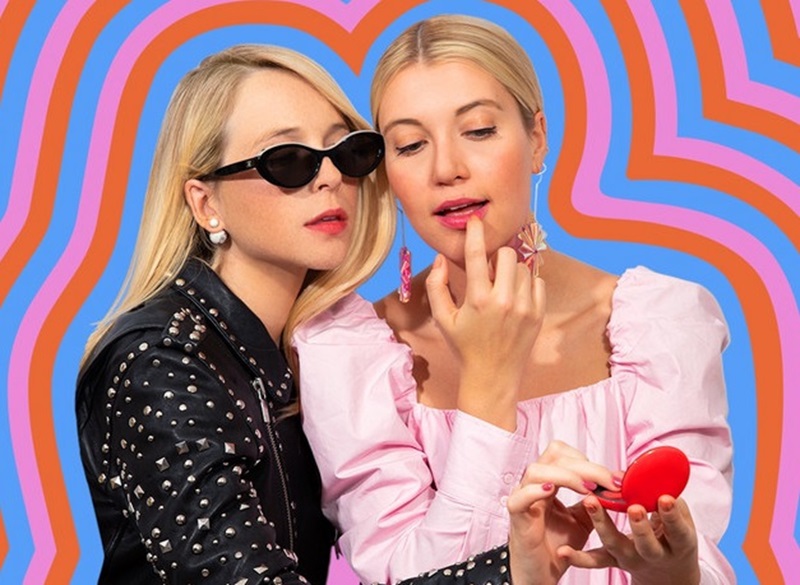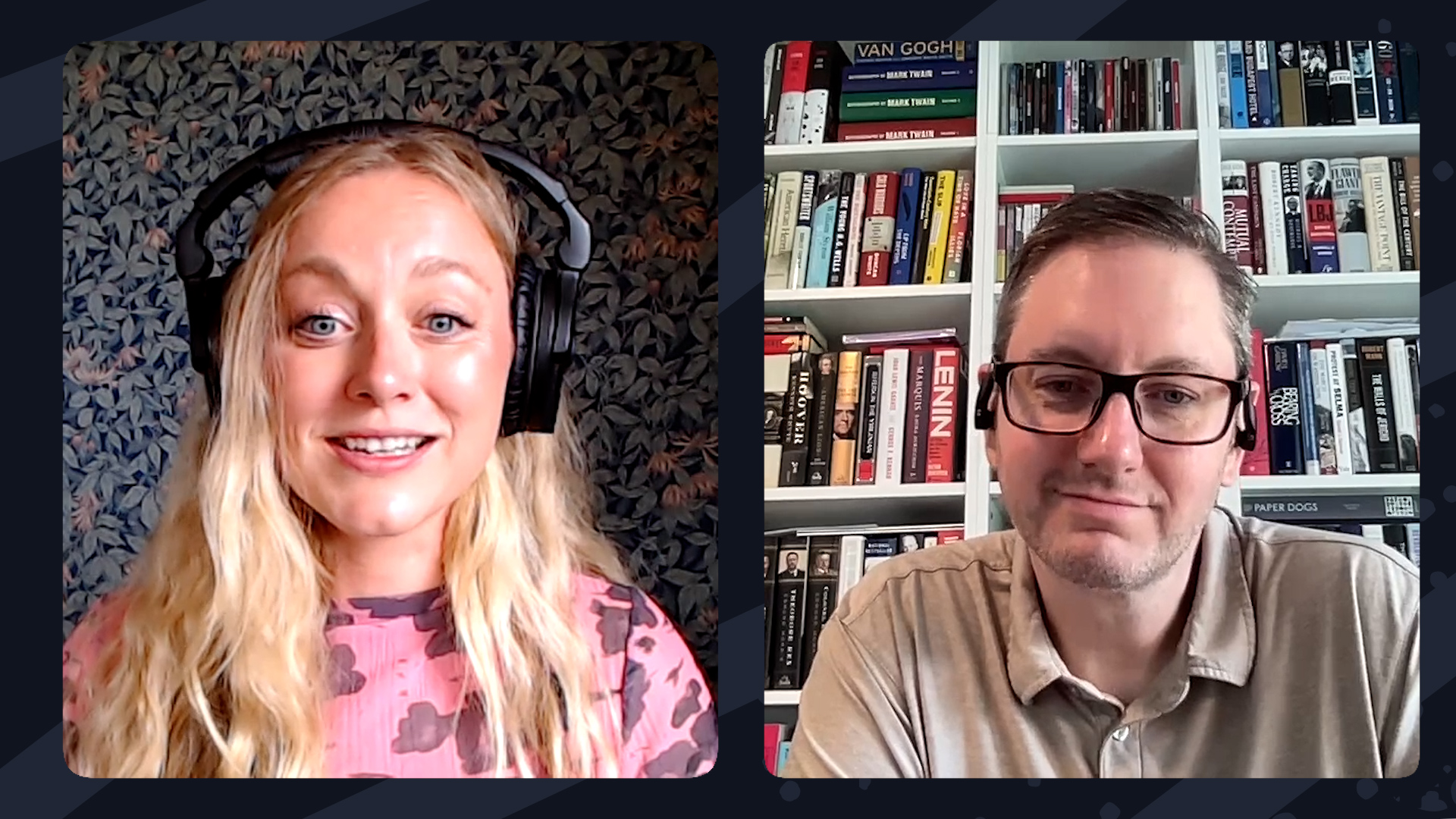The importance of focusing on "the next 1000 subscribers"

Before founding Big IP, a content studio that manages podcasts and YouTube channels including The John Campea Show, Brav Bros, Pop Apologists and Kempire, Scott Porch was an attorney and a journalist. “The main thing I covered when I was a full-time reporter was film and television. I wrote for the New York Times and Fast Company and Wired and Decider and some other outlets,” he starts.
One of the themes he explored was how podcast and YouTube culture was growing up around film and television. He wrote a piece about Game of Thrones recappers for the New York Times and spent more and more time around this topic and meeting people in the industry, then moved to producing shows at Starburns Audio in 2019. “I went out on my own and have grown from a handful of podcasts and YouTube channels to 14 or 15,” he adds.
Scott believes two components make a podcast successful: the creative component and audience reach. “There's a relationship between those two things,” he says. “It's difficult to grow a podcast that's not very good, but it's also difficult to take a podcast that is really good and sustain it over a long period of time.”
He believes that you need to get both components right. “You have to make something people want to hear and you have to be able to go out and find that audience to get those people to hear it in the first place.” As Scott discussed with Brian Morrissey when he made a guest appearance on The Rebooting podcast, sometimes the podcast is the business and sometimes it's the marketing for the business.
Getting through the noise and staying consistent
Success also depends on the scale of the host – this has become increasingly important for launches. Popular podcasts such as The Movie Podcast and How Did This Get Made have been around long enough that the hosts are well-known because of the podcast, but it's a crowded space. “It's gotten difficult to get through the noise. A lot depends on who it is,” says Scott. “If Taylor Swift started a podcast tomorrow, she could monetize it on day one. If I started a podcast tomorrow, it'd be a different conversation.”

Monetizing depends on different thresholds of listenership. “At 50,000 downloads an episode, there's a much larger range of host-read monetization ad companies that are going to be interested in making a minimum commitment to the show where you’ll make a certain amount of money. But even for shows with 5,000 to 10,000 downloads an episode, you can start to make incremental money with membership and programmatic revenue,” he explains.
Pop Apologists, one of the shows Scott works on, has 2,000+ paid members between Patreon and Apple Podcast subscriptions. They've been able to grow that membership by doing it for many years, and they've been consistent at doing one episode a week that's public and one episode a week that's for members. Scott explains that, importantly, those episodes are qualitatively the same. “If you like one episode, you'll like the other one.”
Getting started with membership
In terms of membership specifically, how do you get started? “A lot of shows that come from YouTube are familiar with YouTube's members program – there's a general awareness out there but in a lot of cases, they haven't taken that step because it's just a thing on their list they haven't gotten to yet or they're not aware of how they want to do it,” Scott says.
Perhaps the creator is already making so much content that they don't know if they have enough time to do more episodes for a premium platform and or if it is going to generate enough revenue, or if the premium platform is going to cannibalize the public platform.
“A lot of it is uncertainty or simply a place on their trajectory they haven't gotten to yet and need guidance,” Scott says. “They need someone to say, ‘There's money there if you want to go and pursue that’. If you have a creative business, you're wearing so many hats and there's so much to do. You're going to need people and or, at the very least, tools and services to help you build your business,” he continues.
In that case, how do you choose the tools and services that you need to support your own business, particularly for membership? “A couple of things seem to be pretty consistent in the market over the last couple of years,” starts Scott. “Number one: people who listen to podcasts, or watch YouTube videos, form an affinity with creators. There's a willingness to reward creators with recurring revenues – $4 a month, $6 a month, maybe $10 a month. These consumers do this not just because they want something ‘extra’ from the creator but because they want to support the creator in that as a career and not just as a side gig.”
The other trend Scott has seen is that consumers are platform specific. “When Pop Apologists started talking about Apple Podcasts subscriptions, they were already doing really well on Patreon. One of the concerns they had about Apple Podcasts’ was that it would cannibalize Patreon – ‘We might need to pull the plug if we see a big drain from Patreon to Apple – but that isn't what happened at all. What happened is Patreon continued to grow and Apple Podcasts has grown every month since we launched.”
 Pop Apologists saw great growth on Patreon as well as Apple Podcasts
Pop Apologists saw great growth on Patreon as well as Apple Podcasts
Scott has seen this for numerous other shows and heard about this specificity from other people. “If consumers are on Apple Podcasts, they might listen to four, six, 10 podcasts, but that is where they're going to listen to them. They're not going to Patreon or YouTube. But if you put it in front of them on Apple, they'll subscribe to it.”
A direct connection with your audience
Scott believes it's crucial for creators to have a direct relationship to consumers, citing a podcast startup called Luminary as a cautionary tale. “It was a Netflix-style approach where they were licensing different creators to do shows. You would subscribe to this platform and pay.”
Scott recalls that Luminary didn't work because consumers don't want that intermediary. “Consumers want to know that they're directly supporting that show and that their $7 a month or $50 a year is going to that individual creator rather than to Luminary or Netflix or somebody else.
This direct relationship is important to creators, too. It made good consumer and financial sense to launch Pop Apologists on Apple Podcasts to go after that audience, but Scott and the team simply don't know who those subscribers are. “We don't have their email addresses. We can't have a forum on Zoom once a month with those people. We can't let them know when we're going to be on some other podcast or when we're going to be doing a live show. We don't have any information about those people,” he explains.
Scott thinks that if you want to monetize, pick a platform where you can have that direct relationship. “If you’re just growing incrementally it might be time to launch Apple Podcasts subscriptions or Spotify subscriptions – but I would much rather have that person's direct information than just have them sort of ‘out there’,” he adds.
Focus on the future
For budding podcasters, Scott offers advice about future-proofing: “Don't get insular with your audience. Make your show for the next 1,000 subscribers, not the first 1,000 subscribers. Every day someone new listens to your podcast who doesn't already know the format of your show.”
Scott says to focus on the first 30 seconds of your show. He asks: “Are you introducing yourself to a first time listener? Or are you signaling ‘This is the popular table and you don't get our jokes; you might want to go listen to something else as we've got our group already’.
 Scott tells Madison from Memberful you should always focus on your next 1,000 subscribers
Scott tells Madison from Memberful you should always focus on your next 1,000 subscribers
He realizes it's easy to default to that because of the aforementioned direct consumer relationship: “You do want it to be a club. You just don't want it to be a club with no doors, where this number of people you have is all you're ever gonna have,” he explains. “You've got to find that balance between giving your subscribers what they're there for, but not being so insular that someone new listens to it and says, ‘They've already got their thing. I don't want to be involved.’ If every single episode can't function as the first episode, then you're telling that new listener the show is not for them.”
Scott is given podcast recommendations all the time and can tell in the first 10 seconds. “Give me 10 seconds of telling me who you are and what this podcast is about and what you're gonna be talking about today. Otherwise, I think ‘I'm not a member of this club. I've already missed it’ – there's too much history and ‘in’ vocabulary. That can be a killer for podcasts.”

It’s the same for pre-roll ads. “Some shows I work with have pre-roll ads and we all make money from that,” says Scott. “If they stopped doing it, they would make less money. But who wants the first thing they listen to the first time they listen to your show to be an ad for Volkswagen? I want the first thing they hear to be the host’s voice.”
In concluding, Scott offers a tip on resilience for new podcasters. “You'll see lots of creators make five episodes. They're not seeing the growth so they leave. If you really want to do this, as a business growth tool or just a creative outlet, you're going to have to do it longer than you think before it feels like it's succeeding.
This isn’t necessarily a bad thing: “You're gonna get a lot better at it during those first 25, 35 episodes. You're going to get feedback. You have to do it because you enjoy it and you understand it's going to be an incremental success. There are lots of shows that grow from their 300th to 400th episodes. Are you committed? You're not going to get 25,000 downloads right out of the gate unless you're famous.
What's the show that you would listen to? Which episode are you seeing longer playthroughs on? If it's something you really want to do, you're going to have to have to be patient to figure it out creatively.”
More information
Big IP helps creators produce, promote, and monetize podcasts and other content across YouTube, audio, memberships, and live events. The studio manages more than a dozen YouTube channels and podcasts, including The John Campea Show, Dan Murrell Podcast, No Filter with Zack Peter, BravBros, Kempire and Pop Apologists.
For more information about Big IP and Scott Porch, go to bigipmedia.com.
Subscribe for updates
Stay up to date on Memberful's latest product updates, insights, and teaching centered around growing your community.
Have an audience?
Customers like Mythical (28+ million subscribers) rely on Memberful to power their membership communities.
Get started for free